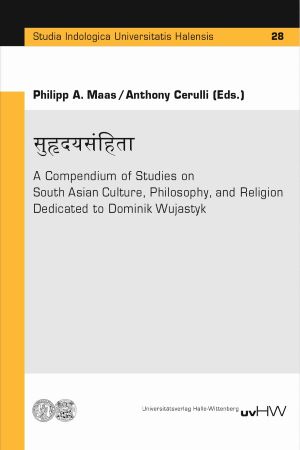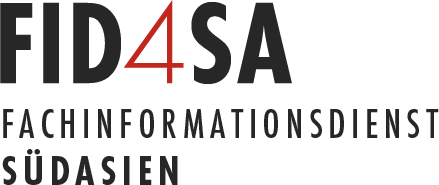Studia Indologica Universitatis Halensis
Die Serie Studia Indologica Universitatis Halensis wird seit 2011 von Walter Slaje unter Mitwirkung von Katrin Einicke und Andreas Pohlus, seit 2022 von Petra Kieffer-Pülz und Andreas Pohlus unter Mitwirkung von Katrin Einicke (bis 2023) herausgegeben. Schwerpunkt dieser im Wesentlichen kulturhistorisch ausgerichteten Monographienreihe ist die historisch akzentuierte Indienforschung, basierend auf der Analyse von indischen Primärquellen. Dementsprechend ist sie offen für alle geschichtlichen Aspekte des indischen Kulturraums, wie es die Geistes-, Ideen- und Religionsgeschichte, die Schöne Literatur, die einheimischen Wissenschaften sowie die vormoderne Sozial- und politische Geschichte Indiens sind.
Kontakt
Universitätsverlag Halle-Wittenberg
Mansfelder Straße 56
06108 Halle-Wittenberg
Verlagshomepage
Bisher erschienen
Suhṛdayasaṃhitā: A Compendium of Studies on South Asian Culture, Philosophy, and Religion. Dedicated to Dominik Wujastyk
Die Dominik Wujastyk gewidmete Suhṛdayasaṃhitā ist ein Sammelband, der dreizehn Studien zur südasiatischen Geistes- und Kulturgeschichte vom Beginn unserer Zeitrechnung bis zur Gegenwart vereint. Die Multidisziplinarität und Vitalität der akademischen Fächer Indologie und Südasienkunde zeigen sich immer wieder, wenn führende Wissenschaftler neue Fragen stellen und neue Methoden erproben, um kritische Themen in ihren jeweiligen Forschungsfeldern zu untersuchen, wie das Verhältnis der Sprachen Gāndhāri und Sanskrit, indische und interkulturelle Ornithomantie, die Weltanschauung und Ethik des frühen Ayurveda, Strichzeichnungen in alchemistischen Sanskrit-Manuskripten, die Rolle von Cannabis in der traditionellen Alchemie (Rasaśāstra), deontische Logik und terminologische Probleme in Mīmāṃsā und Dharmaśāstra, die Identifizierung eines unbekannten Yoga-Werks in der Kommentarliteratur des Mahābhārata, psychologische Transformation und spirituelle Befreiung im Pātañjala Yoga und Buddhismus, Editionstechnik des Sanskrit und die Geschichte des Buchdrucks in Devanagari-Schrift, das menschliche Genomprojekt und die Textgeneaologie des Mahābhārata sowie schließlich die akademische Pädagogik heutiger Medizinanthropologie. Die bewährte Methode der Analyse von Primärquellen auf Sanskrit und in mittelindo-arischen Sprachen in ihren kulturspezifischen historischen Kontexten wird durch Neurowissenschaften, Psychologie, Evolutionsbiologie und Anthropologie befruchtet.
In ihrer thematischen und methodischen Vielfalt spiegelt die Festschrift, die mit einem Werkverzeichnis von Dominik Wujastyk und drei Indizes abschließt, das breite Spektrum der wissenschaftlichen Interessen und Expertise des Wissenschaftlers, dem sie gewidmet ist.









